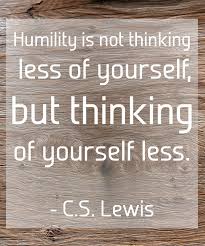 What makes a person happy? That's a question, men and women through the ages have tried to answer. We, like those who came before us, try to live a life that will marked by happiness and contentment. But how can we find some assurance that the way we are living will actually bring us happiness?Following Jesus is about the transformation of our attitudes about life--those inner dispositions that rise up within us from time to time as we live our life; do our job and raise our family. Jesus was concerned with the inside--knowing that we'd be concerned with our outside world and the outer markers of success in life. He will not allow his followers to camp out in the suburbs of the Kingdom he is ushering in. He wants the Kingdom to be birthed within each heart. [tweetthis]The Beatitudes are nine needed attitudes to find happiness in this life--right now. [/tweetthis]His Beatitudes --nine statements about the inner life of his followers focus on nine specific attitudes that followers of Jesus need to cultivate to truly be happy and to really live in the blessing of God.One of the best ways to understand what the Beatitudes of Jesus are about is to realize that the beatitudes are about our attitudes. The transformation of our attitudes in life—those inner dispositions about life, our self and God. Each of the nine attitude statements offered us by Jesus reveal a shifting of the tectonic plates of our soul. These nine attitudes challenge our long held and often fortified beliefs about what really makes a person happy. We have long held and closely maintained systems that have shaped our own understanding of how a person finds happiness. Many of our beliefs are cemented in our ideas about security, position, money and success. Yet, Jesus turns our programmed systems of belief on it's head. Each attitude shows us a whole-other-way to live.There is a specific call to action in each of the attitudes. We are told to BE the attitude—not just hold to a certain belief. When we become the actual attitude that Jesus describes—then the blessing comes—then our happiness is anchored in something more real that circumstances, temporary events or nice geographical settings such as mountain vistas and sandy beaches. Happiness is not circumstantial not is it related to positions we find ourselves in at any particular moment. True happiness and blessing is inside—and reveals to us a Kingdom within each heart right now.When we cultivate the attitudes of Jesus, we sense a shifting inside:
What makes a person happy? That's a question, men and women through the ages have tried to answer. We, like those who came before us, try to live a life that will marked by happiness and contentment. But how can we find some assurance that the way we are living will actually bring us happiness?Following Jesus is about the transformation of our attitudes about life--those inner dispositions that rise up within us from time to time as we live our life; do our job and raise our family. Jesus was concerned with the inside--knowing that we'd be concerned with our outside world and the outer markers of success in life. He will not allow his followers to camp out in the suburbs of the Kingdom he is ushering in. He wants the Kingdom to be birthed within each heart. [tweetthis]The Beatitudes are nine needed attitudes to find happiness in this life--right now. [/tweetthis]His Beatitudes --nine statements about the inner life of his followers focus on nine specific attitudes that followers of Jesus need to cultivate to truly be happy and to really live in the blessing of God.One of the best ways to understand what the Beatitudes of Jesus are about is to realize that the beatitudes are about our attitudes. The transformation of our attitudes in life—those inner dispositions about life, our self and God. Each of the nine attitude statements offered us by Jesus reveal a shifting of the tectonic plates of our soul. These nine attitudes challenge our long held and often fortified beliefs about what really makes a person happy. We have long held and closely maintained systems that have shaped our own understanding of how a person finds happiness. Many of our beliefs are cemented in our ideas about security, position, money and success. Yet, Jesus turns our programmed systems of belief on it's head. Each attitude shows us a whole-other-way to live.There is a specific call to action in each of the attitudes. We are told to BE the attitude—not just hold to a certain belief. When we become the actual attitude that Jesus describes—then the blessing comes—then our happiness is anchored in something more real that circumstances, temporary events or nice geographical settings such as mountain vistas and sandy beaches. Happiness is not circumstantial not is it related to positions we find ourselves in at any particular moment. True happiness and blessing is inside—and reveals to us a Kingdom within each heart right now.When we cultivate the attitudes of Jesus, we sense a shifting inside:
- We discover a true sense of happiness and well-being.
- We discover our programmed way for happiness that is shaped by culture both in the church and around us in the world.
- We find a whole, new way to live that begins on the inside and centrifuges to those around us.
- We learn to live with a new foundation, authored by Jesus and lived out by the early church—modeled by the early church fathers and mothers yet, ignored in our current state of affairs.
- We live less obsessed with our daily crisis and challenges and live in a Kingdom perspective of the wider, greater dimension than just self.
- We see in a whole other way of looking at life, self, and the world. In holding to the larger story, we tolerate the smaller story of trials and tribulations right now.
The first four beatitudes focus on our exaggerated and embellished view of life as we see it on our own. The first four attitudes are dispositions within each person. These are the lenses through which we look at life, other people and ourselves.
- Blessed are the poor—reveals our obsession with security and what security really is.
- Blessed are those that mourn—shows the necessity of giving up that which we clinch and crave and learn to relax in the letting go of what we hold most dear and vital in life. Inner freedom comes as we let go.
- Blessed are the meek—lays the foundation that by giving up control in life we learn to receive all that God desires to give us.
- Blessed are those who hunger and thirst—uncovers the deep desires for what will gratify us—but never satisfy us.
The need for security; our propensity to hold tightly what we think we know and value most; our issues of control and the deep desires for what we think will satisfy us and our “rights” to pursue the fulfillment of self are confronted with a clarion call to live in a whole, other way is foundational to living well in the heart of Jesus. The Beatitudes show us the way.The next three Beatitudes flow from the first four attitudes being transformed. As we cultivate the right inner attitudes, then we are ready to extend our lives for the sake of others.
- Blessed are the merciful—shows our need to accept others no matter their circumstances and to realize their Belovedness—not just our own.
- Blessed are the pure in heart—reveals the holiness of everyone and everything and to observe the mystery of God in our dailiness, events and world around us not just the epiphanies.
- Blessed are the peacemakers—shows us that peace flows first from within us and is our inside job to cultivate and then give to others.
The last two attitudes are about embracing suffering not ignoring it. Suffering is inevitable in following Jesus. He suffered—so will his followers. It cannot be avoided and our attitude towards suffering is important.
- Blessed are those who are persecuted—lays down a core truth that the followers of Jesus must move beyond self-interest and the daily obsessions with our own lives to the plight of others who are less fortunate.
- Blessed are you when people revile you and persecute you—helps us understand the role of criticism and rejection and helps redefine our true identity as the Beloved sons and daughters of another world.
(If you're new the blog, you'll want to look back and scroll through earlier entries where I'm trying to give my voice to each attitude and Beatitude).









